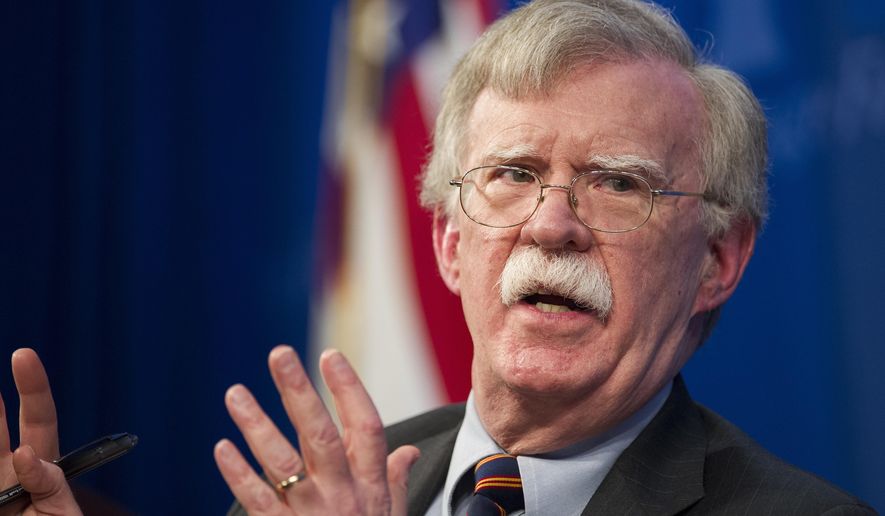OPINION:
Nobody ever said the Trump White House offered much in the way of job security. President Trump has just let go of his third National Security Adviser, John Bolton, joining prior White House casualties H.R. McMaster and Michael Flynn. Mr. Bolton had been in the post since April of last year.
John Bolton, a hawk and veteran of the neoconservative George W. Bush administration, was an odd choice for President Trump, who has made reducing America’s global footprint a priority. His hiring was to Mr. Trump’s credit: He was willing to elevate somebody with whom he knew he might occasionally disagree. The president was happy to entertain alternate point of views, a sign of good leadership.
And disagree they did. Mr. Trump has extended diplomatic overtures to North Korea’s Kim Jong-un and the Taliban in Afghanistan. Mr. Bolton opposed both initiatives. Mr. Bolton is also an Iran hawk; Mr. Trump clearly does not want to start another war in the Middle East.
Now, the president has an opportunity to pursue diplomacy unencumbered by a naysaying NSA. As Guy Taylor noted in these pages on Wednesday, “National security sources said Tuesday that Mr. Bolton’s departure could open the way for renewed “working level” talks and a possible step-by-step approach with North Korea — an approach the State Department was once seen to advocate only to be shut down by Mr. Bolton’s demand that Pyongyang accept an all-or-nothing deal.” Mooted talks with the Taliban can now continue as well.
Presidents can appoint their own advisers, of course, and Mr. Trump was well within his rights to hand Mr. Bolton his walking papers. But we think that John Bolton, a distinguished public servant and a fine patriot, was largely a good influence in the White House, tempering the president’s more outlandish instincts. He was reported to have opposed the president’s ill-considered invitation to the Taliban to visit Camp David, for instance. Negotiations with the Taliban are important, and perhaps worth pursuing as we seek to end a war that has dragged on for 18 long years. But not at Camp David, and certainly not on the week where we mark the anniversary of the 9/11 atrocities. Mr. Bolton was also correct to insist that North Korea demonstrate real progress on denuclearization — progress that has so far yet to materialize in any meaningful way. He stood out for wanting substance, not just photo-ops.
Mr. Bolton was also keen to confront Russia and keep U.S. troops in Syria to fight ISIS. “Bolton also broke with Trump with his vocal condemnation of Russia’s global aggressions, and last year he masterminded a quiet campaign inside the administration and with allies abroad to persuade Trump to keep U.S. forces in Syria to counter the remnants of the Islamic State and Iranian influence in the region. Bolton’s maneuvering at the time contrasted with former Defense Secretary Jim Mattis’ decision to instead resign over Trump’s December withdrawal announcement, which has been effectively reversed,” the Associated Press reported.
Mr. Bolton evidently felt that he could influence the president’s behavior more effectively in the White House rather than making a statement by resigning. And it is to his credit, as well, that he always said what he thought, without fear of offending his boss. But he will no longer have that ability as his forced resignation took effect immediately.




Please read our comment policy before commenting.